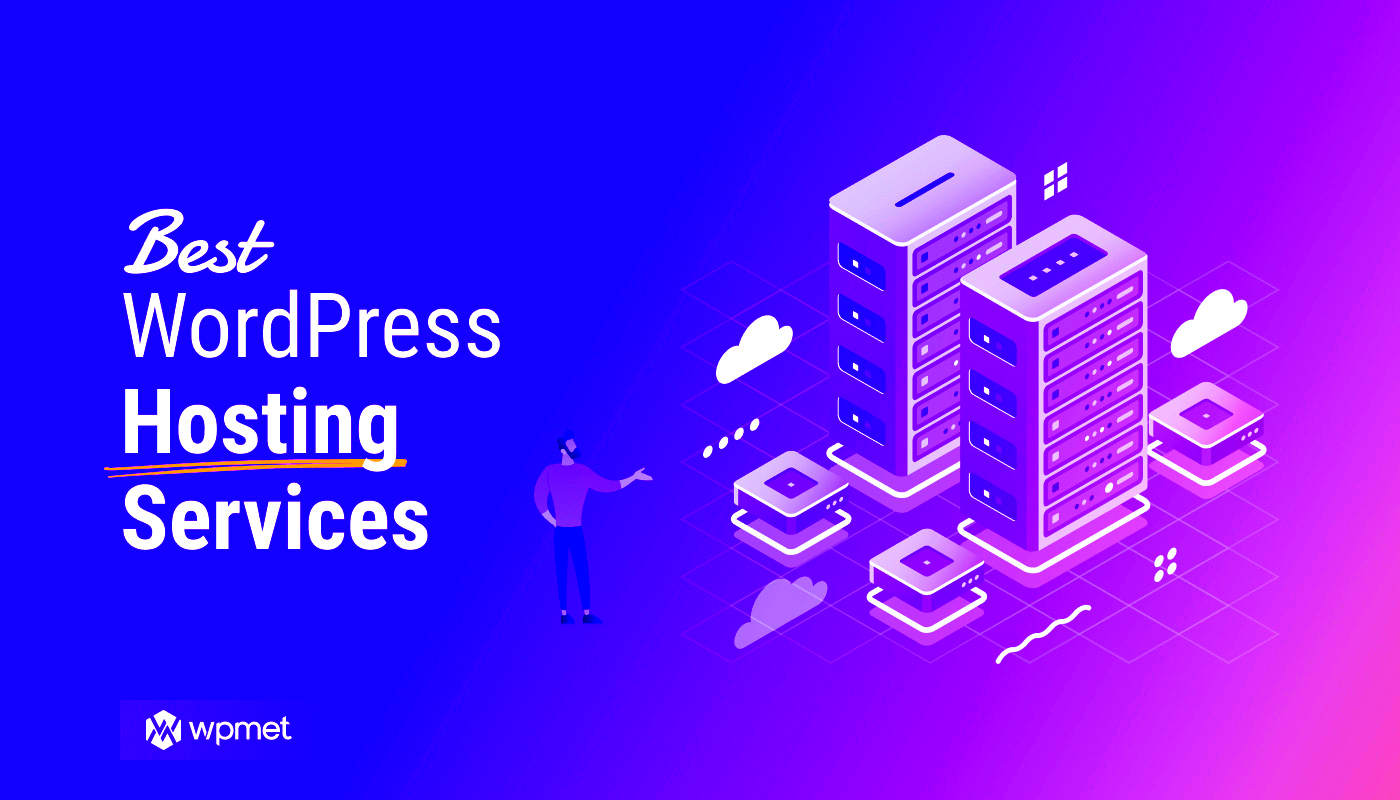WordPress is not just a platform for building websites; it serves as a dynamic environment that enhances your digital presence. Its flexibility and user-friendly nature make it an ideal choice for beginners and experts alike. But here’s the kicker: even the best-looking WordPress site won’t cut it without SEO, or Search Engine Optimization.
SEO is the backbone of online visibility. It’s how your website gets noticed by search engines, ultimately driving traffic and potential customers. In simple terms, WordPress and SEO make for a power couple in the digital world. If you want your blog, business, or portfolio to shine, knowing how these two work together is crucial. So, let’s dive in and find out how to leverage WordPress and the right web hosting to boost your SEO rankings!
Understanding Web Hosting Types
When it comes to web hosting, choosing the right type is crucial for your WordPress site’s performance and SEO success. Not all hosting services are created equal, and understanding the different types can keep your website running smoothly. Here’s a quick breakdown:
- Shared Hosting: This is the most budget-friendly option, where multiple websites share the same server resources. While it can save you money, it may lead to slower load times, which can negatively impact your SEO.
- VPS Hosting: Virtual Private Server hosting strikes a balance between shared and dedicated hosting. You still share a server, but with fewer users, which means better performance and flexibility. It’s a solid choice for growing websites.
- Dedicated Hosting: This option gives you an entire server just for your website. It’s robust, offering excellent speed and performance, but it comes with a higher price tag. Perfect for high-traffic sites where speed is essential for SEO.
- Managed WordPress Hosting: Tailored specifically for WordPress, this hosting type offers optimized performance, automatic updates, and specialized support. This is a great choice for those who want the best possible SEO performance without getting their hands too dirty.
- Cloud Hosting: A scalable option that uses multiple servers to host your site. This can be perfect for handling traffic spikes without sacrificing performance. Fast load times make it a good option for SEO!
When selecting a hosting type, consider factors such as budget, expected traffic, and technical expertise. Ultimately, the right web hosting provider will set you up for SEO success, allowing your WordPress site to reach its fullest potential!
Key Factors to Consider for SEO-Friendly Hosting
When it comes to finding the best web hosting for SEO success, there are several key factors you should take into account. Not all hosting providers are created equal, and choosing one that aligns with your SEO goals can make a significant difference in your website’s visibility. Let’s dive into the most important elements you should consider:
- Server Location: The closer the server is to your primary audience, the faster your website will load for them. Choose a hosting provider with servers located in or near your target region.
- SSL Certificate: Security is paramount for both users and search engines. An SSL certificate not only protects your data but also boosts your SEO ranking. Look for hosting that includes a free SSL certificate.
- Quality of Technical Support: When you’re facing hosting issues, quick help can prevent downtime, which can hurt your SEO. Choose a host that offers 24/7 support via multiple channels.
- Scalability: As your website grows, you’ll need an hosting solution that can grow with you. Make sure the host has upgrade options that suit your future needs.
- Content Delivery Network (CDN): A CDN can improve your website’s speed by distributing content across various locations around the globe. Check if your hosting includes CDN services.
By focusing on these factors, you’ll be equipped to choose a hosting provider that not only keeps your website up and running but also helps you achieve your SEO objectives.
Performance: Speed and Uptime
When it comes to web hosting, two key performance metrics are speed and uptime. Both play crucial roles in determining your site’s SEO performance and overall user experience. Let’s break them down:
| Performance Metric | Importance |
|---|---|
| Speed | The faster your website loads, the better the user experience. Page speed is a significant ranking factor for search engines, as users are likely to abandon slow-loading sites. |
| Uptime | A website that is frequently down will hurt your SEO efforts. Strive for a hosting provider that guarantees at least 99.9% uptime to ensure your site is always available to users and search engines. |
When selecting a hosting provider, consider the following:
- Speed Tests: Many hosting companies provide demo accounts. Utilize speed testing tools to see how quickly their servers load web pages.
- Server Response Time: Ideally, server response time should be under 200 milliseconds. This metric can greatly influence your site’s loading speed.
- Uptime Guarantees: Look for hosting companies that offer a clear uptime guarantee policy, often backed by compensation in case they fall short.
In summary, when you choose a hosting provider that prioritizes speed and uptime, you’re laying a strong foundation for SEO success. Remember, a fast, reliable website enhances user experience, which can lead to better rankings on search engines!
5. Security: Protecting Your WordPress Site
When diving into the world of WordPress, one crucial aspect that often gets overlooked is security. Imagine you’ve put countless hours into building a beautiful website, only to find it hacked or compromised. Yikes! That’s why the right web hosting plays a vital role in fortifying your site against potential threats.
So, what should you look for in a web host when it comes to security?
- SSL Certificates: Secure Socket Layer (SSL) certificates are a must-have. They encrypt data between your site and its users, providing an extra layer of protection.
- Regular Backups: Look for hosts that offer automated daily backups. With these, you can easily restore your site to a previous state if anything goes wrong.
- Firewalls and Malware Scanning: A good host should provide built-in firewalls and regular malware scans. This helps detect and block any malicious activity before it can harm your site.
- Two-Factor Authentication: Keep your WordPress admin panel secure with two-factor authentication. It adds an additional step in the login process, making it harder for hackers to gain access.
- Server-Level Security: Hosting companies that implement server-level protections, like DDoS mitigation and intrusion detection systems, can significantly enhance security.
By prioritizing security in your web hosting choice, you’re investing in not just your website’s safety but also its long-term SEO success. Google rewards sites that are secure, which can improve your rankings. So, don’t cut corners—make security a priority!
6. Scalability: Preparing for Growth
As your website gains traction, the last thing you want is for your web hosting to hold you back. Scalability should be at the forefront of your mind when selecting a hosting provider. It’s all about ensuring that your WordPress site can grow seamlessly without interruptions.
Why is scalability important?
- Traffic Surges: If your content goes viral or your business blossoms overnight, your site needs to handle spikes in traffic. A scalable hosting solution can accommodate these changes without crashing.
- Resource Allocation: As your site grows, so will your need for resources—think bandwidth, storage, and processing power. A scalable host allows you to easily upgrade your plan to meet these demands.
- Future-Proofing: You might start with a basic blog but aim to create an e-commerce platform in the future. A host that supports scalability will be invaluable as you pivot and expand.
- Seamless Transitions: Look for a provider that offers hassle-free upgrades and migrations, so you don’t have to deal with downtime or complex transitions.
By selecting a hosting service that emphasizes scalability, you prepare your WordPress site for future growth. This not only keeps your site running smoothly but also gives search engines confidence in its stability—something that can positively impact your SEO rankings down the road. Get ready for a successful journey ahead!
7. Customer Support: Getting Help When You Need It
When it comes to web hosting, one of the most crucial aspects is customer support. Imagine this: your website goes down, your e-commerce site is losing sales, or a critical plugin isn’t working properly. In these situations, timely and effective support becomes invaluable.
Here are some factors to consider when evaluating customer support for your WordPress hosting provider:
- Availability: Check if support is available 24/7. A hosting provider might offer great services, but if they are unavailable when you need help the most, it’s not worth it.
- Multiple Channels: Look for companies that provide support through various channels, such as live chat, email, and phone support. Ideally, live chat should be instant, and phone support should minimize hold time.
- Knowledge Base: A comprehensive knowledge base can be a blessing. It should include tutorials, FAQs, and troubleshooting guides, empowering you to solve common issues on your own.
- User Reviews: Take a peek at customer reviews regarding the support experience. Are they mostly positive, or do they express frustration? Customer experiences often say a lot about a provider’s reliability.
- Expertise: It’s important that support staff are knowledgeable about WordPress. Ask questions during the sign-up process to gauge their expertise.
Ultimately, effective customer support can save you time, stress, and potentially lost revenue. So when researching your options, make it a priority to find a hosting provider that has a strong support system in place.
8. Pricing: Choosing the Right Plan for Your Budget
When it comes to web hosting, pricing is often a pivotal factor in your decision-making process. Hosting services can range from budget options to premium plans, so how do you choose the right one for your WordPress site without breaking the bank?
Here are some key points to consider:
- Understand What You Need: Before diving into pricing, identify your website requirements. Are you running a simple blog or a resource-heavy e-commerce site? This will affect the type of hosting you need.
- Initial vs. Renewal Pricing: Many hosting providers lure you in with discounted prices for the first year, only to increase rates significantly upon renewal. Always check the renewal pricing to avoid surprises.
- Features vs. Cost: Don’t solely focus on the price; think about what features come with each plan. Look for essential features like SSL certificates, backups, and CDN services that might come with higher-priced packages.
- Shared vs. VPS vs. Managed Hosting: As a beginner, shared hosting may be affordable, but consider VPS or managed WordPress hosting as your site grows. These often provide better performance and support, which can be worth the investment.
- Money-Back Guarantee: Many hosts offer a 30 or 60-day money-back guarantee. This allows you to try out their service and see if it fits your needs without financial risk.
In the end, choosing the right hosting plan for your budget is about balancing your immediate financial concerns with long-term needs. Investing appropriately in hosting can lead to greater SEO success and a better overall experience for your visitors.
Top Recommended Web Hosting Providers for WordPress SEO
When it comes to WordPress SEO, choosing the right web hosting provider can significantly influence your site’s performance and search engine ranking. Below are some top recommended web hosting providers that stand out for their superb WordPress SEO capabilities:
- SiteGround – Known for its incredible speed and excellent customer service, SiteGround offers a WordPress-specific hosting plan with features like automatic updates, free daily backups, and a dedicated team of WordPress experts. Its integrated caching helps improve loading speeds, which is crucial for SEO.
- Bluehost – Officially recommended by WordPress.org, Bluehost provides an array of features, including a free domain for the first year, one-click installs, and a user-friendly dashboard. Their uptime reliability makes them a smart choice for maintaining your site’s performance.
- A2 Hosting – With a reputation for speed, A2 Hosting offers Turbo servers that can significantly enhance loading times. Their SEO tools, like free SSL and page optimization features, ensure you stay ahead in the rankings.
- WP Engine – If you’re looking for premium managed WordPress hosting, WP Engine is worth considering. They offer a secure environment, automatic backups, and expert support, all while focusing on performance optimization for better SEO outcomes.
- Kinsta – Kinsta provides high-performance managed WordPress hosting with Google Cloud’s powerful infrastructure. Their built-in performance monitoring and fast loading times give you an edge in maintaining good SEO practices.
Each of these providers offers something unique, but the common denominator is their commitment to ensuring your WordPress site runs smoothly and efficiently. Therefore, choosing one from this list could mean a step forward in boosting your SEO success!
Conclusion: Making an Informed Choice
In the ever-competitive digital landscape, the importance of web hosting for your WordPress SEO cannot be overstated. Selecting a hosting provider is more than just about speed or cost; it’s about finding a reliable partner that aligns with your website’s goals. Here are some crucial considerations to help you make an informed choice:
- Speed and Performance: Fast load times enhance user experience and are vital for improving your SEO ranking. Look for hosting providers that offer optimized performance metrics.
- Uptime Guarantees: A reliable host should guarantee at least 99.9% uptime. Any downtime can adversely affect your traffic and SEO rankings.
- Customer Support: Great customer service can save you countless headaches. Ideally, choose a provider that offers 24/7 support, preferably with WordPress expertise.
- Scalability: As your site grows, your hosting needs will change. Opt for a provider that offers scalability, allowing you to upgrade your plan easily as your traffic increases.
- SEO Features: Some hosts include features specifically designed for SEO, such as free SSL certificates, integrated caching systems, and automatic updates.
Ultimately, the key is to assess your specific needs, budget, and future goals before making a decision. Armed with the above recommendations and considerations, you can move forward confidently, setting the stage for your WordPress SEO success.



